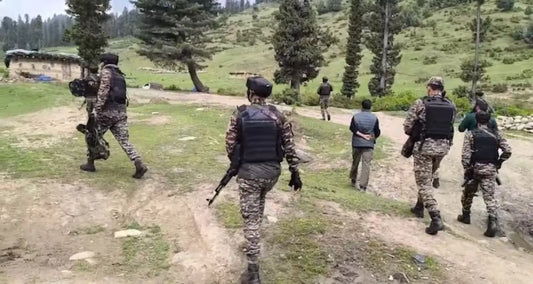Dismissal of Over 90 Frontier Corps Members Highlights Ethnic Tensions in Pakistan's Bajaur Region

In a significant development of internal upheaval, more than 90 members of Pakistan’s Frontier Corps (FC), predominantly of Pashtun descent, have been removed from service for their refusal to engage in military operations against their fellow Pashtuns in the turbulent Bajaur area. This dismissal was reportedly ordered by a high-ranking Wing Commander, indicating rising discontent within the paramilitary forces of Pakistan.
The Frontier Corps, operating under the Pakistan Army’s oversight, is composed of four main units stationed across Balochistan and Khyber Pakhtunkhwa. Tasked with responsibilities of border protection and maintaining internal order, the FC has faced growing criticism over its controversial involvement in counter-insurgency actions in tribal areas. The latest dismissals illustrate the increasing disaffection among Pashtun soldiers, many of whom are resigning in protest against operations they perceive as targeting their own community.
This rising discontent aligns with the resurgence of the Pashtun Tahafuz Movement (PTM), a grassroots rights initiative that continues to gain traction, even after being outlawed by the Pakistani government in October 2024. Several PTM leaders have since entered the political arena, obtaining parliamentary positions and intensifying demands for accountability regarding state actions in Pashtun-populated regions.
The FC’s operational conduct, especially in Balochistan and Khyber Pakhtunkhwa, has been a subject of controversy for some time. Allegations of summary executions, enforced disappearances, and collective punishments have tarnished its reputation. With a budget surpassing Rs. 105 billion and a personnel strength of approximately 70,000, the FC remains a potent yet divisive entity within Pakistan’s domestic security landscape.
The recent mass dismissal of FC members could have extensive repercussions for Pakistan’s internal cohesion and its strategy in counter-insurgency. As ethnic identities increasingly conflict with state mandates, this incident sheds light on the delicate balance between national security measures and minority communities, particularly in sensitive border areas.



















